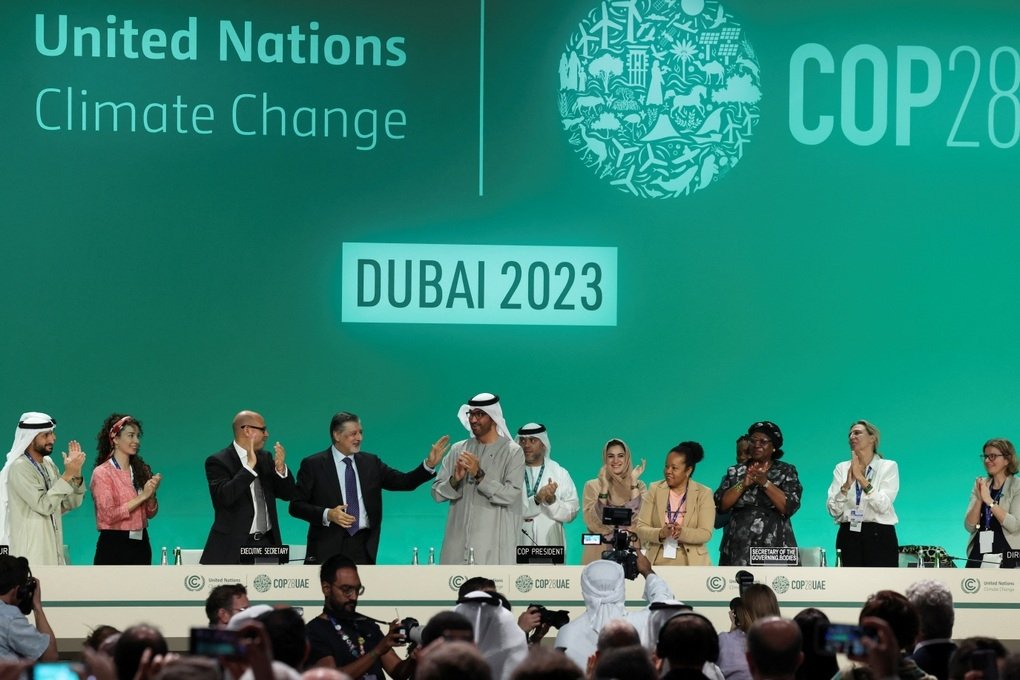
COP28 reached a historic agreement, countries promised to reduce oil use
(Dan Tri) – The COP28 conference ended with representatives of nearly 200 countries agreeing to reduce global fossil fuel consumption to prevent the worst impacts of climate change.
Minister of Industry and Advanced Technology of the United Arab Emirates and President of COP28 Sultan Ahmed Al Jaber attends the plenary session after the draft agreement was announced at the Conference on Climate Change
The text of the agreement calls for `a transition away from fossil fuels in energy systems in a fair, orderly and equitable manner… to achieve net zero emissions by 2050 consistent with science.`
The agreement also calls for tripling renewable energy capacity globally by 2030, accelerating reductions in coal use, and accelerating research into technologies (such as carbon capture and storage) that can clean up fossil fuels.
COP28 President Sultan Al Jaber called the agreement `historic` but emphasized that its real success lies in its implementation.
`We must take the necessary steps to translate this agreement into real action,` he told the plenary session at the COP28 summit.
The countries reached the above agreement in Dubai after two weeks of tough negotiations to send a strong signal to investors and policymakers that the world unanimously wants to give up fossil fuels.
Some countries applauded the deal because it accomplished something that had been difficult to do in decades of climate negotiations.
More than 100 countries want the deal to include strong language calling for a `phase out` of oil, gas and coal.
Oil producers argue that fossil fuels can have no climate impact if technology is used that can capture and store carbon dioxide emissions.

COP28 President, Sultan Ahmed Al Jaber, hugs Mr. Simon Stiell, Executive Secretary of the United Nations Framework Convention on Climate Change, on December 13 (Photo: Reuters).
Once the agreement has been signed, countries are responsible for implementing it through national policies and investments.
In the United States, the largest emitter of greenhouse gases in history, climate-conscious governments often struggle when trying to pass laws that comply with the country’s commitment to combating climate change.
In this field, US President Joe Biden won a big victory last year when he passed the Inflation Reduction Act, providing hundreds of billions of dollars in subsidies for electric vehicles, wind, solar energy and other technologies.
Growing support for renewable energy and electric vehicles around the world, coupled with technological progress, falling costs and growing private investment, has fueled rapid growth in the industry.
Even so, oil, gas and coal still account for about 80% of the world’s energy.


